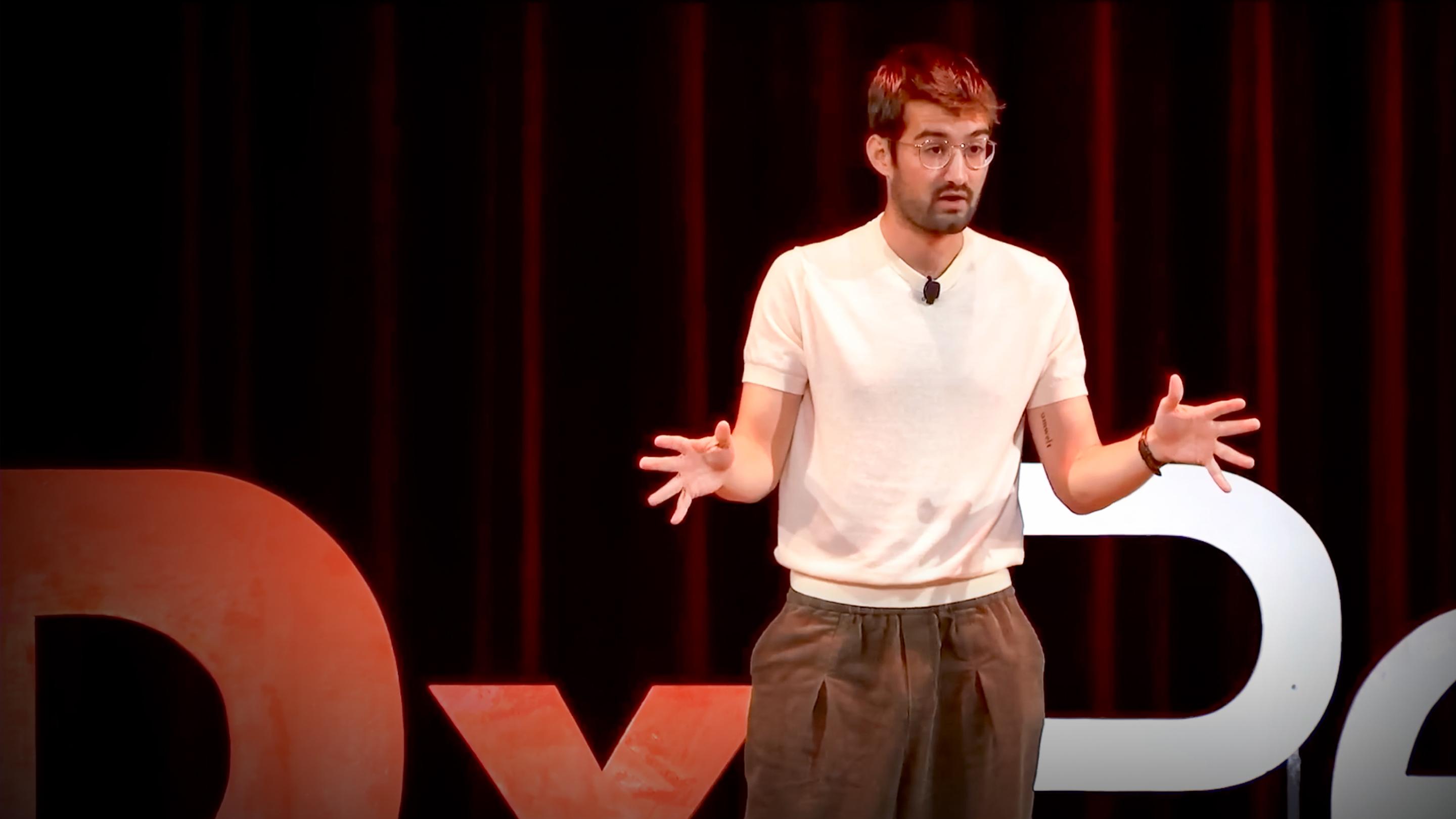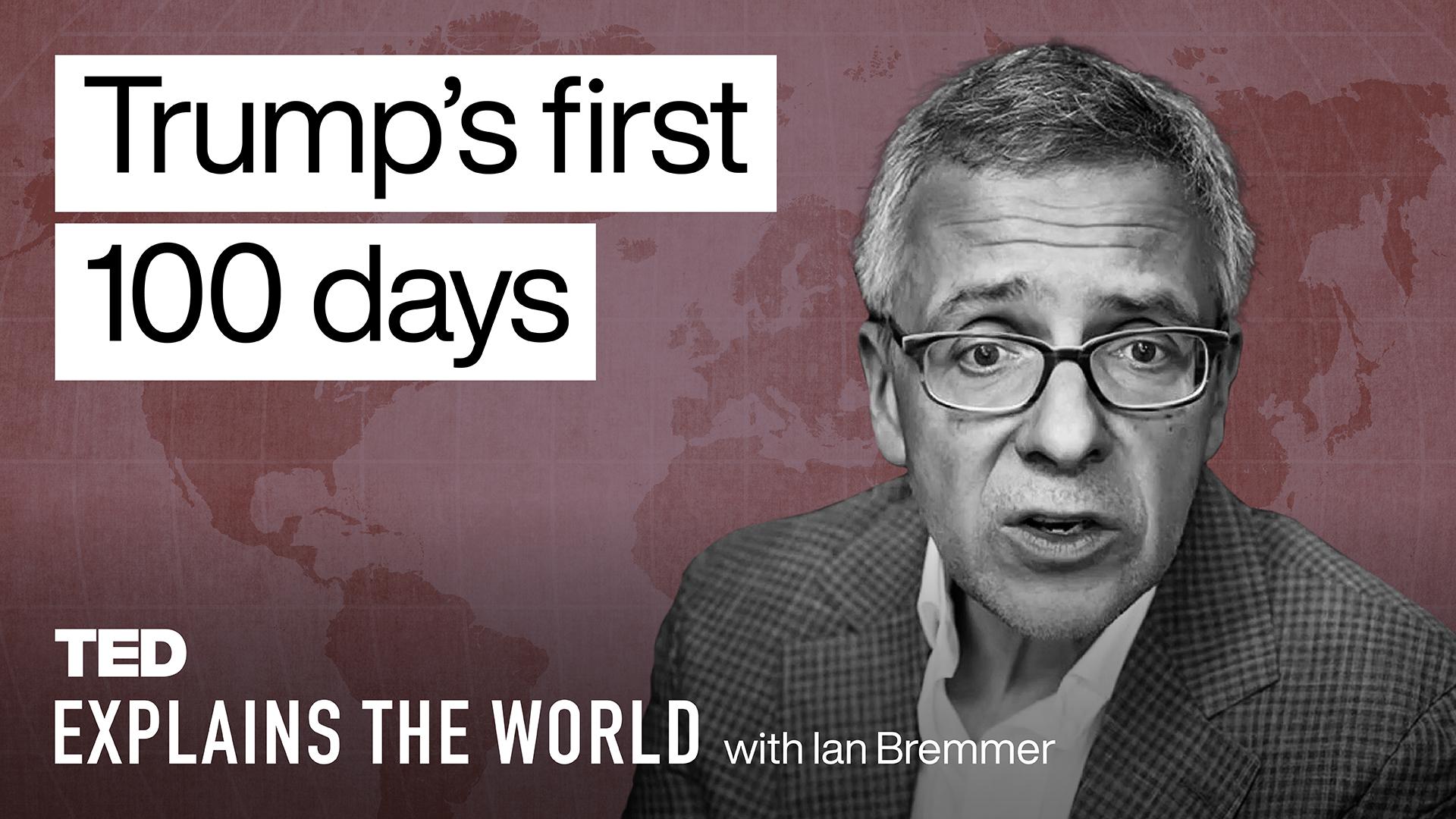Discover TED Talks Daily (SD video)
TED Talks Daily (SD video)

TED Talks Daily (SD video)
Author: TED
Subscribed: 149,000Played: 4,733,880Subscribe
Share
© TED: https://www.ted.com/about/our-organization/our-policies-terms/ted-com-terms-of-use#h2--copyright-issues-and-licenses
Description
TED is a nonprofit devoted to ideas worth spreading. On this video feed, you'll find TED Talks to inspire, intrigue and stir the imagination from some of the world's leading thinkers and doers, speaking from the stage at TED conferences, TEDx events and partner events around the world. This podcast is also available in high-def video and audio-only formats.
1017 Episodes
Reverse
What if the polarizing mess of social media, clickbait headlines and addictive algorithms isn't a breakdown of media but a transition to something better? Substack cofounder Hamish McKenzie explores how independent creators are growing a new media "garden," where trust beats engagement metrics and audiences matter more than ads. Learn why clicking “subscribe” doesn’t just signal support; it gives you power.
Yoshua Bengio — the world's most-cited computer scientist and a "godfather" of artificial intelligence — is deadly concerned about the current trajectory of the technology. As AI models race toward full-blown agency, Bengio warns that they've already learned to deceive, cheat, self-preserve and slip out of our control. Drawing on his groundbreaking research, he reveals a bold plan to keep AI safe and ensure that human flourishing, not machines with unchecked power and autonomy, defines our future.
In environmental reporting, “it's not always about the big climate story,” says journalist Katherine Dunn. She challenges newsrooms to rethink how they cover climate change, connecting to the things readers love — whether that’s jobs, football or even a good mango — with three actionable tips for making overlooked stories irresistible.
You’re invited into a bold new vision for the climate movement — a space of trust and honesty, where artists inspire action and everyone has a role to play. Social impact leader Matthew Phillips explores how shared purpose and imagination can revive the fragmented approach to climate action and unlock the power of collective momentum.
The arrival of non-human intelligence is a very big deal, says former Google CEO and chairman Eric Schmidt. In a wide-ranging interview with technologist Bilawal Sidhu, Schmidt makes the case that AI is wildly underhyped, as near-constant breakthroughs give rise to systems capable of doing even the most complex tasks on their own. He explores the staggering opportunities, sobering challenges and urgent risks of AI, showing why everyone will need to engage with this technology in order to remain relevant.
What if solving hunger isn't about growing more food but wasting less of it? Social entrepreneur Jasmine Crowe-Houston has made that idea her mission with Goodr, a platform that reroutes surplus food to people in need. In conversation with journalist and "TED Radio Hour" host Manoush Zomorodi, she shares how a viral moment led to a nationwide effort to fix the food waste problem.
Gen Z slang is rife with new words like "unalive," "skibidi" and "rizz." Where do these words come from — and how do they get popular so fast? Linguist Adam Aleksic explores how the forces of social media algorithms are reshaping the way people talk and view their very own identities.
At the plant-based burger chain Slutty Vegan, Pinky Cole is flipping the script on vegan food with bold style. In conversation with host of "TED Radio Hour" Manoush Zomorodi, she shares the highs and lows of her entrepreneurial journey, from her roots in Baltimore to the grease fire that took her first storefront in Harlem. Learn more about the authenticity, resilience and community that went into building a multimillion-dollar vegan food empire.
Duncan Keegan doesn't consider himself a poet, but this deeply beautiful talk shows otherwise. With simple grace and quiet eloquence, he celebrates family, connection and togetherness, often most called for at the hardest of times.
Tech innovator Avni Patel Thompson designed an app to shield busy parents from the chaos of scheduling school pickups, coordinating playdates, planning birthday parties and more — but as the product developed, something felt off. What might we lose when AI smooths over the friction of everyday family life? Patel Thompson explores her surprising discovery and how you can leverage AI to connect more deeply with the ones you love.
Andy Laats had the textbook fairytale family setup ... a great job, a happy marriage, three wonderful kids and everything going for them. Until one day, they didn't anymore. In this tender, wise and unexpectedly funny talk, Laats describes the profound lessons he's learned over the years as a father, offering insights that will resonate with anyone who's ever had any kind of family.
"Do you know what you want to preserve for the next generation?" asks community leader Ndinini Kimesera Sikar. Drawing on her experience growing up in a family of 38 in a traditional Maasai village in Tanzania — where every chore was shared, every story was sung and belonging meant survival — she explores how we can blend the old with the new to build the life we want, encouraging us all to ponder our list of "must-haves" for the future.
AI is transforming the way we work — could it also reshape what makes us human? In this quick and insightful talk, evolutionary anthropologist Sarah Blaffer Hrdy explores how the human brain was shaped by millions of years of shared childcare and mutually supportive communities, asking a provocative question: If robots help raise the next generation, will we lose the empathy that defines us?
Who do you turn to when panic strikes in the middle of the night — and can AI help? Psychologist Alison Darcy shares the vision behind Woebot, a mental health chatbot designed to support people in tough moments, especially when no one else is around. In conversation with author and podcaster Kelly Corrigan, Darcy explores what we should expect and demand from ethically designed, psychological AIs.
With just a few lines, cartoons can say so much with so little. In a moving talk, cartoonist Navied Mahdavian shares his process for distilling huge concepts into drawings on the page — and shows how his work helped him grieve the death of his beloved grandmother, flaws and all.
The energy grid of the future demands a massive amount of materials: billions of solar panels, millions of wind turbines and more. Climate strategist Marielle Remillard reveals why there may be critical shortages ahead — and breaks down how this could also be the biggest business opportunity since the Industrial Revolution.
Jedi master of visual effects Rob Bredow, known for his work at Industrial Light & Magic and Lucasfilm, takes us on a cinematic journey through the evolution of visual effects, with behind-the-scenes stories from the making of fan favorites like “Jurassic Park,” “Star Wars,” “Indiana Jones” and more. He shares how artist-driven innovation continues to blend old and new technology, offering hope that AI won’t replace creatives but instead will empower artists to create new, mind-blowing wonders for the big screen.
Rich Benjamin is a cultural critic, anthropologist and author of the new memoir "Talk to Me: Lessons from a Family Forged by History." In this interview with "TED Talks Daily" podcast host Elise Hu, Benjamin discusses the power of history in shaping generations — and how the intimate search for answers in his own family’s past helped him tell the story of two nations. (This interview is part of the TED Talks Daily Book Club series, recorded live for the TED Membership program. TED Members are invited to attend live recordings and participate in Q&As with authors. To join in on the fun, sign up at go.ted.com/membership.)
Technologist Tristan Harris has an urgent question: What if the way we’re deploying the world’s most powerful technology — artificial intelligence — isn’t inevitable, but a choice? In this eye-opening talk, he calls on us to learn from the mistakes of social media’s catastrophic rollout and confront the predictable dangers of reckless AI development, offering a “narrow path” where power is matched with responsibility, foresight and wisdom.
It’s been an eventful first 100 days for the second Trump administration, which has featured tariff turmoil, shifting foreign policy and the upheaval of prior geopolitical relationships. In this discussion, political scientist Ian Bremmer separates signal from noise in the biggest stories of the day, evaluating the global economy, US-China relations, the future of Ukraine and Europe, immigration and more. (This interview, hosted by TED’s Helen Walters, was recorded on April 29, 2025.)



























well said
Thanks for the stunning lecture
The Wealth Education Podcast is your new go-to source for mastering personal finance, investments, and wealth-building strategies. Hosted by experts, the podcast simplifies complex financial topics, offering real-life tips and proven tools to help listeners achieve financial independence. Whether you're a student, entrepreneur, or working professional, this podcast empowers you to make smarter money decisions. It also occasionally touches on legal insights that impact financial well-being, like understanding injury claims and liabilities—relevant topics such as this article: https://thelegalqna.com/what-is-hurt-when-hurt-becomes-grievous-hurt-under-bns/
55555555555 X: 2 T: Mudgee R: waltz M: 3/4 L: 1/8 K: DmajPatrick Fingleton Grange Upper X: 2 T: Mudgee R: waltz M: 3/4 L: 1/8 K: Dmaj F3 G A2|D2 E2 F2|G4 B2|E4 A2|c3 B A2|G2 A2 G2|F4 G2|A6| F3 G A2|D2 E2 F2|G4 B2|E4 A2|c3 B A2|G2 F2 E2|D6|D6| f3 e d2|F2 A2 d2|c4 B2|E4 A2|c3 B A2|G2 A2 G2|F4 G2|A6| f3 e d2|F2 A2 d2|c4 B2|E4 A2|c3 B A2|G2 F2 E2|D6|D6|| Stradbally Co Laois R32Y2H5 30 May 2025 Account number: 6212264936 Your plan: Your Loyalty Rural 24 Hour Variable Price Plan Meter number: 32856244
thank you, indeed. you put it very wisely
Great. I like it
بدرخشید ******
بدرخشید ******
بدرخشید *****
******بدرخشید
******بدرخشید
Thats great ..pl put the subtitle on each video
how can I have transcript?
I have questions , what are the best Toys of all nowadays? 😉
gooooooooooooood
ALL>FUL>MOVIES>LINK👉https://co.fastmovies.org
Palestine has every right to repel the INTRUDERS
amazing talk
fruitful
another prostitute shill for the next fearporn